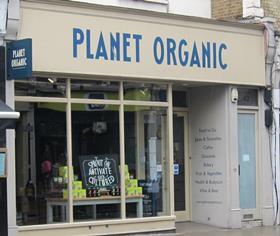
Despite Soil Association data showing that the UK organic market grew for the third year in a row, work needs to be done to boost the fresh produce side of the category.
Organic growth continues to outstrip that of conventional produce, though, and it appears more consumers are beginning to come on board with the health and environmental messages. However, whether there is enough organic produce to go round to fill these consumers’ baskets is another matter.
Adam Wakeley, CEO of organic produce firm Ethical Fruit Company, says: “At less than two per cent penetration, we are substantially behind other European countries where penetration is six to eight per cent, and it is nearing 14 per cent in the USA. So we have a long way to go. There are huge demands for availability coming from the USA, which keeps costs higher than we would like. New plantings across the board are therefore needed to keep ahead of demand. Many growers like to balance their markets by having customers on both side of the Atlantic so this helps, but we have to fight hard for availability. More production is needed.”
As well as rattling the UK’s leading supermarkets, Aldi has also introduced an increasing number of organic fresh produce lines over the last two years. But suppliers don’t always welcome this, as Wakeley notes: “There is a risk they undervalue the offer by selling it as a loss leader.”
Nevertheless, it’s not all dispiriting on the grocery retail giant side of things. Wakeley adds: “We’ve been delighted by the continued support shown by the main retailers, especially Tesco and Sainsbury’s, who continue to offer a good range, and who have experienced outperformance.”
Despite retailers such as the aforementioned duo looking to cut ranges across the store, this is not believed to have had an adverse effect on organic listings, nor is it believed to have affected NPD in the category.
Eddie Wilkinson, head of category at Produce World, says: “Organic tends to have less NPD anyway, so is not as affected by range rationalisation. Organic NPD is less common because this adds another premium to new products which are already sold at a premium. If something works in conventional, then organic tends to follow, for example, kale.”
This price premium continues to stand out like a sore thumb on the shelves, especially when conventional fresh produce items have been hit by wave after wave of price cuts.
On this matter, Wilkinson says: “Deflation has only helped volumes modestly in conventional, and has widened the gap with organic. So organic looks expensive beyond those who can afford it. Wakeley, meanwhile, says certain supermarkets have held out a helping hand to the category: “Retailers have been pragmatic about pricing, and in many cases have invested their own percentage margin to shorten the pricing gap.
“Through this approach, there has been price deflation against volume increases. They continue to recognise that the organic consumer is vitally important and they want to retain them, so they keep pricing as attractive as they can as it brings a benefit to the overall shopping basket spend.”
With online organic retailer Ocado recently announcing a 15.3 per cent year on year rise in sales, it’s no surprise to hear Wakeley talk up the potential of this platform. Allied to this, he adds: “Organic brands are particularly strong too, as they deliver a good point of difference to own label.”
The surge in popularity of box schemes and the ‘clean eating’ trend are two things that are walking hand in hand into the future with the organic category, as well as the industry’s latest craze – wonky produce. Claire McDermott, business development director at Soil Association Certification, says: “A recent NFU report said people were not eating their 5 A Day, and thereis an overall trend in a reduction of fruit and veg consumption.
“However organic fresh produce is working hard to reverse this, and fruit and vegsales are growing steadily, withbox salescontinuing to rise too.
“Wonky veg is also much in the news and not excluded from the organic sector, with Ocado supplying misshapen fruit and veg to customers.Millennials are a key customer in growing organic fruit and veg sales – organic fruit and veg benefitscome through the clean eating and juicing trends, with new specific products or boxesbeing developedfor this purpose.”
Organic fresh produce clearly has great potential, and one business which has made a play on this front is veg box specialist Riverford Organic Farmers, which has recently rebranded to put vegetables at the core of what it does.
Wakeley’s calls for increased production need to be heeded, though, to ensure that the organic fresh produce side of the market is fully comfortable walking before breaking into, what appears to be, the inevitable brisk run.



